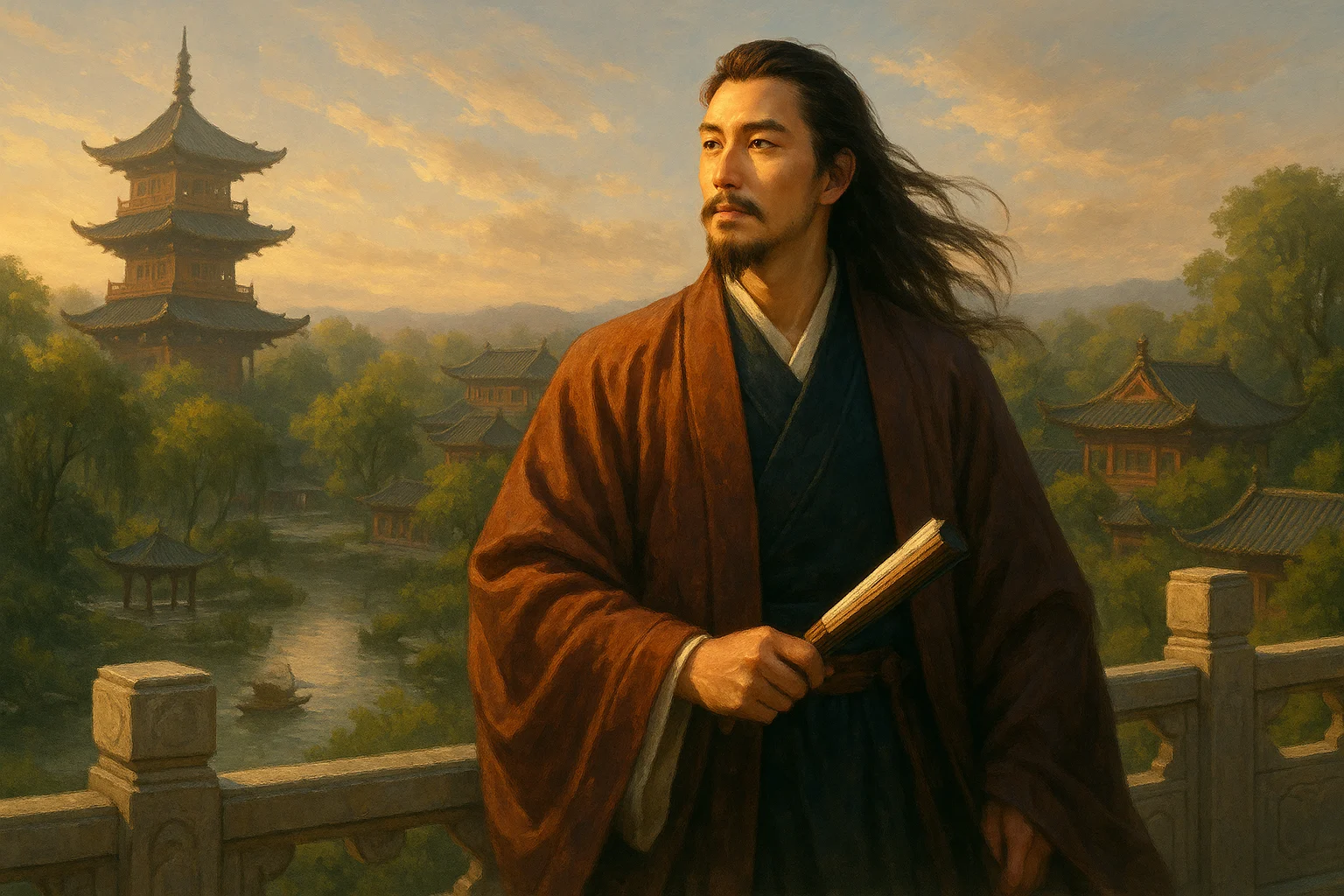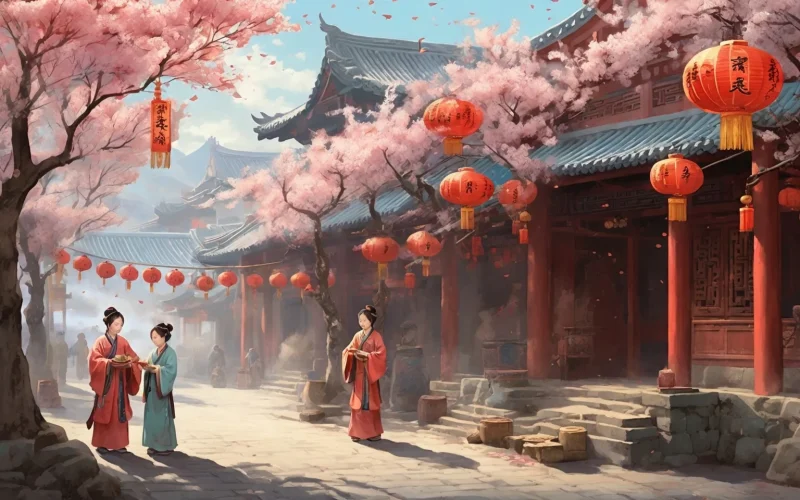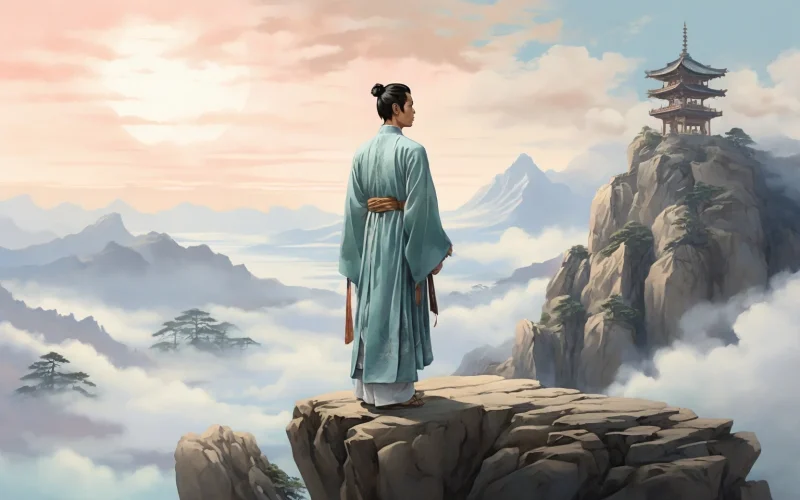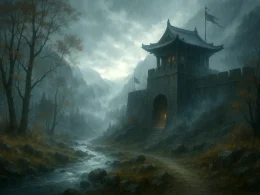Firecrackers detonate the old year's corpse,
Spring wind smuggles warmth into revolt-wine.
Ten thousand doors reboot with new rebellion-glyphs—
Dawn's glare flashes on each insurgent shrine.
Original Poem
「元日」
王安石
爆竹声中一岁除,春风送暖入屠苏。
千门万户曈曈日,总把新桃换旧符。
Interpretation
Composed during the Xining era of the Northern Song Dynasty when Wang Anshi first assumed the position of prime minister and was fully implementing his reform policies, this poem ingeniously incorporates political ideals and reform aspirations into the folk customs of the Spring Festival. It expresses the poet's belief that his new policies would warm people's hearts like the spring breeze. Blending rich festive atmosphere with implicit political allegory, the poem exemplifies Wang's unique style of integrating personal ambitions into the tides of the times through "embedding governance in customs, entrusting aspirations in events."
First Couplet: "爆竹声中一岁除,春风送暖入屠苏。"
Bàozhú shēng zhōng yī suì chú, chūnfēng sòng nuǎn rù tú sū.
Amid firecrackers' roar, the old year makes its bow; / Spring breeze wafts warmth into the Tusu wine now.
This couplet depicts traditional New Year's Eve to New Year's Day customs. "Firecrackers" symbolize driving away evil spirits and bidding farewell to the old, while "Tusu wine" was an auspicious medicinal drink consumed during the festival. The "spring breeze bringing warmth," though a natural phenomenon, is ingeniously personified as actively entering the wine, allowing readers to almost feel the festive gentleness and affectionate warmth. Beginning with sound and answering with warmth, it creates a joyous, auspicious and thriving holiday atmosphere.
Second Couplet: "千门万户曈曈日,总把新桃换旧符。"
Qiān mén wàn hù tóng tóng rì, zǒng bǎ xīn táo huàn jiù fú.
A thousand households bask in the young sun's glow; / Always new peach charms for the old they show.
This couplet portrays the morning scene, with "the young sun" referring to the newly risen sun whose gentle yet warm light symbolizes renewal at the year's beginning. The final line describes the folk custom of "replacing peach charms" - hanging new door gods and spring couplets - subtly conveying the idea of reforming the old and ushering in the new. Here, "new peach charms for the old" is not just a domestic scene but also symbolizes Wang Anshi's political proposition of replacing old policies with new reforms. Through mundane details it implies affairs of state, achieving both naturalness and profundity.
Holistic Appreciation
This poem, ostensibly depicting folk New Year celebrations, subtly conveys the poet's political ideals. The opening couplet describes traditional activities from New Year's Eve to New Year's Day, while the following couplet paints a vivid scene of renewal on the festive morning. Through dynamic interplay of movement and stillness, the poem creates a jubilant holiday atmosphere. Beneath this cheerful surface, Wang Anshi embeds his fervent anticipation for reform. The new year symbolizes fresh beginnings; the Tusu wine represents casting off the old and welcoming the new; the replacement of peachwood charms signifies institutional transformation—all pointing to the theme of "renewal." Compact in structure, plain in language yet profound in emotion, the poem never explicitly mentions reform but pulses with implicit energy in every word, leaving enduring resonance.
Artistic Merits
- Fresh Naturalism, Unadorned Realism
Eschewing embellishment, the poem captures the warm, celebratory holiday spirit through concise depictions of real-life scenes—simple language belying deep meaning. - Scenery as Sentiment, Politics in Folkways
The poet ingeniously weaves reformist ideals into New Year customs, using "new peach charms replacing the old" to express confidence in institutional change, exemplifying Wang's strategy of "embedding ambition in folk culture." - Vernacular Imagery, Universal Appeal
Terms like "firecrackers," "Tusu wine," and "peachwood charms" drawn from daily life heighten the poem's relatability and festive authenticity, fostering immediate reader connection. - Precise Composition, Reason-Emotion Fusion
Transitioning temporally (night to dawn), spatially (sound to sight), and conceptually (sensory to political), the poem forms a seamless, internally coherent lyrical logic.
Insights
More than seasonal verse, this is a politically charged allegory with timeless relevance. It teaches that true reform transcends policy—it must, like spring wind, permeate hearts. As the poem shows, replacing old charms mirrors nature's cycles, embodying the inevitability of new orders replacing old. Celebrating both public joy in tradition and a reformer's hopeful vision, the poem retains its power to inspire proactive optimism today.
About the Poet

Wang Anshi (王安石 1021 - 1086), a native of Linchuan in Jiangxi, was an outstanding statesman, writer, and thinker of the Northern Song Dynasty, counted among the "Eight Great Prose Masters of the Tang and Song Dynasties." His poetic achievements were particularly profound—his early works, filled with heroic language, revealed the ambition of a reformer. Though his ci poetry was few in number, it pioneered new realms of historical reflection. His poetry and prose combined intellectual depth with artistic value, and the over 1,500 works preserved in The Collected Works of Linchuan stand as a monumental testament to literary innovation in Song Dynasty literature.












